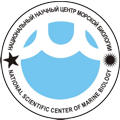View/Download booklet
Goals and subjects of NSCMB FEB RAS activity:
- basic, exploratory, and applied scientific research in the fields of marine biology, biotechnology and related sciences;
- nature conservation activities, as well as hydrometeorological and ecological monitoring of the marine environment, including those carried out with the deployment of research and technical diving equipment and underwater vehicles;
- conservation of biological diversity and maintenance of protected natural systems and objects in their natural state;
- formation of ecological culture and raising the public’s awareness of the importance of environment conservation efforts for saving the national heritage; environmental education and development of ecological tourism;
- organization of science education and environment education exhibits with aquatic organisms and scientific collections deposited at the Center;
- training of highly qualified scientific personnel.
The main activities of the Center are basic, exploratory, and applied scientific research, including design and experimental works, in the following areas:
- study of fauna and flora, ecology and productivity of the biota in the Far Eastern seas and adjacent waters of the Pacific Ocean;
- deep-sea studies of the World Ocean;
- development of scientific bases for conservation, reproduction, and rational management of marine biological resources of the shelf;
- development of scientific bases and technologies for providing biological safety of marine waters and marine-derived products;
- studies of adaptation, ontogenesis, and evolution of marine organisms;
- studies in the fields of molecular genetics, biochemistry, and biotechnology of marine organisms;
- development of technologies of remote sensing and monitoring the biodiversity and marine biological resources in specially protected marine areas;
- development of scientific bases for the conservation of marine biological diversity;
- biomedical studies; marine pharmacology, hyperbaric medicine;
- development of scientific bases and up-to-date technologies for keeping and breeding rare and endangered species of marine organisms;
- studies in the fields of physiology, neurophysiology, and higher nervous activity of marine mammals; study of marine animals’ behavior;
- development of technologies for early diagnostics and treatment of diseases affecting marine animals.
The Center incorporates one branch:









